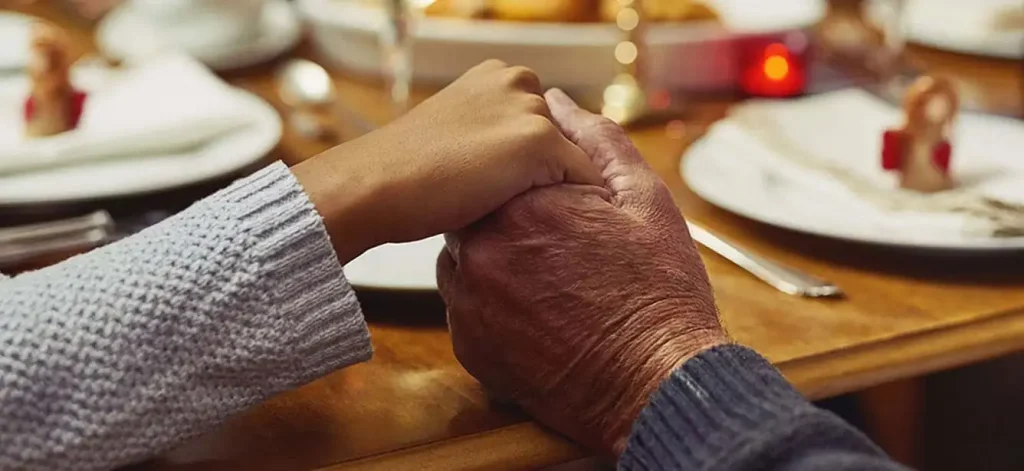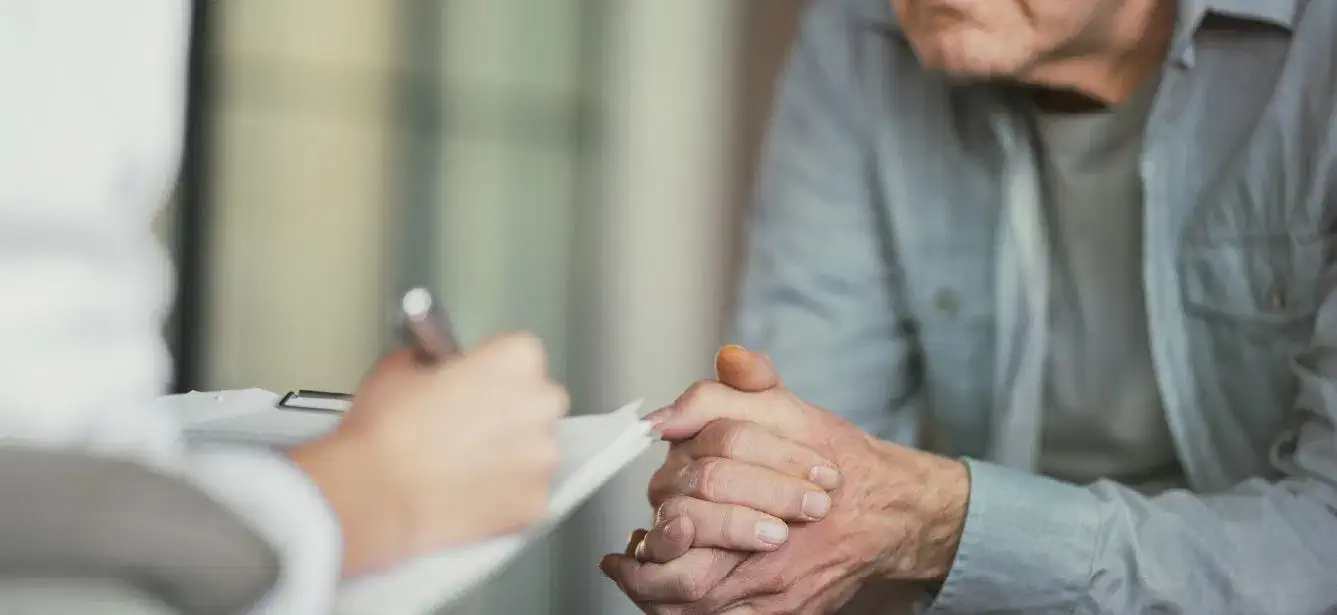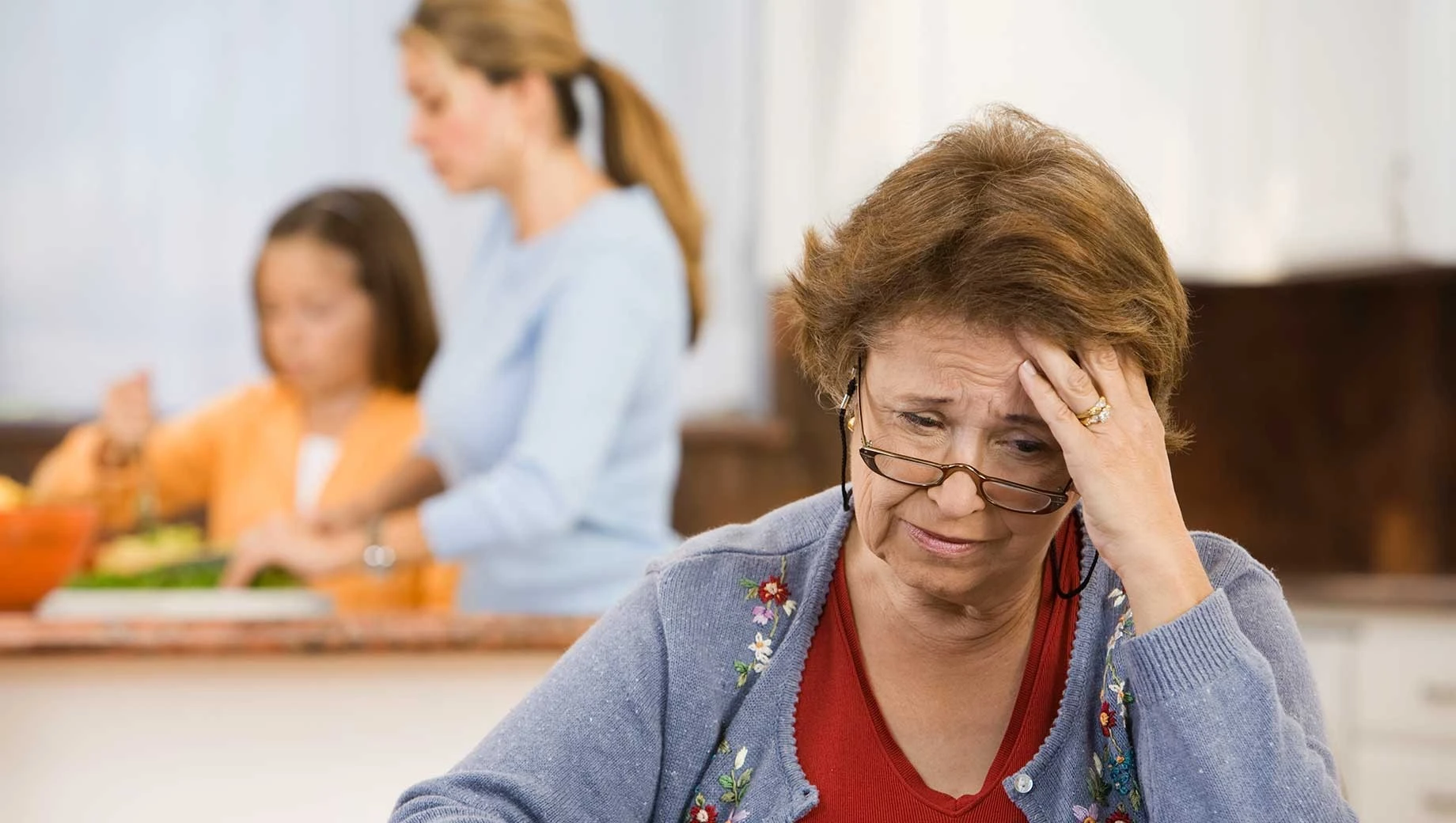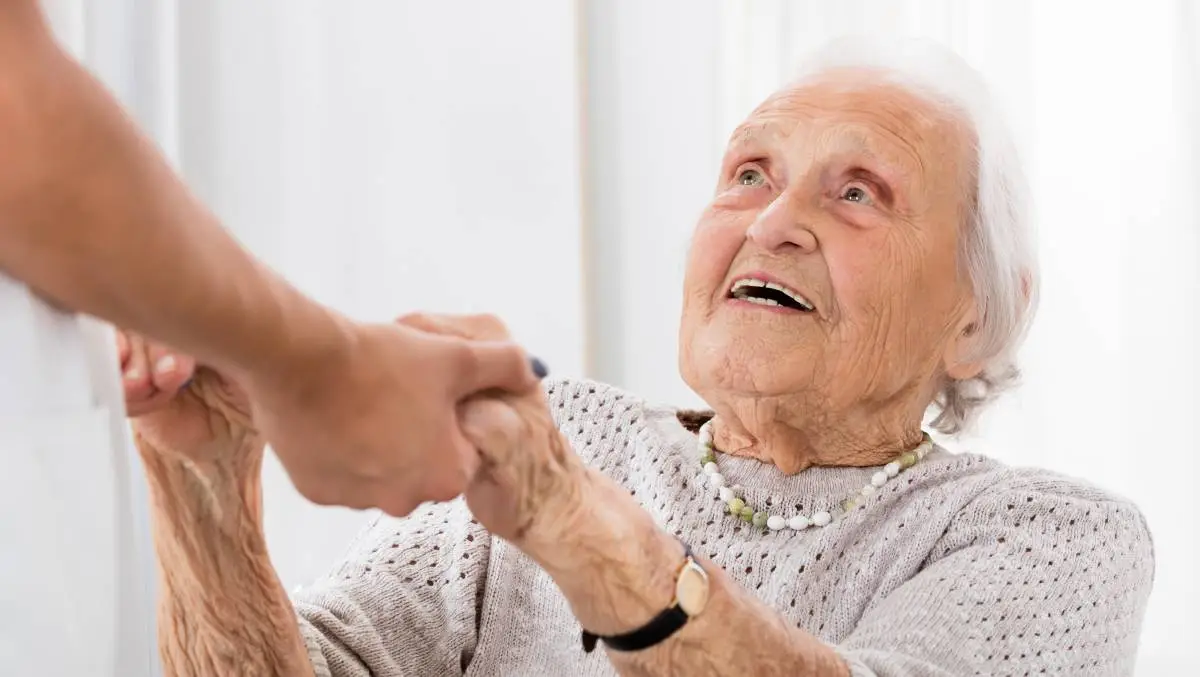
Stress Reduction for Elderly: Best Strategies + Exercises
Sometimes we only focus on the physical health of individuals and forget about mental health issues in elderly. Those whose elderly parents suffer from fear and anxiety know how important and challenging this issue can be. Fear and anxiety have increased in older adults, unfortunately, and this fear and anxiety occur for various reasons, including the loss of loved ones, children moving away, increased frailty and illness, and such factors. If seniors live alone for a long time, these feelings may intensify. But what is the way to alleviate and achieve stress reduction for elderly?
For managing anxiety in seniors, we must address the reasons that have created it. For example, seniors and parents may fear things like falling, meeting new people, changes in their health condition, accidents, or death. There are many different problems that may worry the families of these individuals. In the continuation of this article from humanhealthmag, we will discuss stress relief tips for older adults.
Main Reasons for Stress in the Elderly: Why Do Seniors Experience More Stress?
Stress is a natural bodily response to changes and challenges. For stress reduction for elderly, we need to understand that this reaction may be intensified for various reasons:
- Physiological Changes: Chronic diseases, decreased physical abilities, and hormonal changes
- Psychological Changes: Depression, anxiety, feelings of loneliness, and decreased self-esteem
- Social Changes: Retirement, loss of loved ones, changes in social roles, and reduced independence
- Environmental Factors: Financial problems, changes in living environment, and social pressures
Seniors experience significant stress as they age. Witnessing a spouse’s illness, losing a spouse due to death or divorce, losing family members, friends, or even pets, lacking purpose, lacking peace, and improper care of the elderly, looking after grandchildren and tolerating their noise, retirement and feeling useless, loss of social status, loss of independence due to various disabilities such as numbness in the hands, inability to live alone, inability to perform daily tasks, fear of death and their near future can be just some of the causes of stress in the elderly. Some other underlying factors contributing to anxiety in seniors include:
- Chronic diseases such as diabetes, thyroid problems, chronic obstructive pulmonary disease, cardiovascular diseases.
- Feeling that their health is deteriorating (such as decreased physical ability).
- Sleep disorders.
- Side effects of medications (antidepressants or steroids, etc.).
- Drinking alcohol or misuse of prescription drugs.
- Stressful daily life.
- Severe fear and anxiety disorders in childhood.
- Excessive worry about social, political, or economic issues, etc.

strategies for Reducing Stress in Elderly
By using various effective stress reduction techniques for elderly and management activities for seniors, a calmer and happier life can be achieved during this period.
- Support and Companionship
Older adults and seniors often feel lonely and isolated because their mobility and activity are often somewhat limited, and they may have fewer social interactions. Given their age, some may have recently lost their life partner or moved away from a place where they had friends and companions. Events like these, or their reduced ability to engage with society due to physical illnesses, can cause anxiety or intensify existing anxiety.
Consequently, one of the most important things you can do for a loved one who is aging and suffering from anxiety and restlessness is to ensure that there is always someone or people to support them. Undoubtedly, children are effective in treating restlessness in the elderly and are the best source of companionship, comfort, and socializing for them. However, it is important to ensure that your dear senior also receives this support in your absence. Companionship for seniors suffering from anxiety and stress can be incredibly soothing and calming.improving socialization for elderly
- Relaxation Exercises
For older adults suffering from mild to moderate anxiety, relaxation exercises can be a useful way to relieve and improve, and reduce anxiety and stress in seniors. Focusing on slow and steady breathing can provide immediate and appropriate relief for temporary anxiety-provoking situations. Physical exercise has been proven to help relieve anxiety and stress in the elderly. While physical activity can be a challenge and disability for some seniors, there are various types of low-risk exercises for them that increase their range of motion.
Seniors can try gentle yoga, Tai Chi, or walking. For those with more mobility, activities like water aerobics are also a suitable option for stress reduction for elderly. Listening to soothing sounds is another helpful strategy for coping with and reducing anxiety and stress in the elderly. They can sit calmly, try to relax all their muscles and slow their breathing, and listen to calming music such as ocean waves or nighttime forest sounds, or a radio program or audiobook with a calm narrator’s voice.
- Reassuring Routines
Undoubtedly, older people with dementia suffer from anxiety because when someone realizes that things are not as they should be, they become terrified. If your loved one has dementia, one of the best ways to soothe and reduce their anxiety is to implement a consistent routine in their life. A well-defined schedule, taking into account expectations that are important to them, eliminates some of the parameters that may cause feelings of anxiety in the senior.
Daily routines are also helpful for seniors who do not have dementia but have an anxious mind. Routines provide a predictable daily schedule, and this predictability can be calming for seniors and be a method in stress reduction for elderly. Daily routines can also create a sense of purpose that may not have been given much attention before.
- Proper Night’s Sleep
Most of us will not be surprised to realize that some seniors will need care and assistance at night due to medication interactions or physical illnesses. Therefore, most of them become stressed and worried about being alone in this situation, and nighttime sleep becomes a nightmare for them.

So how should you reduce your dear senior’s nighttime stress? There are numerous possibilities in this regard. Perhaps a family member sleeping near the senior’s sleeping area, or reassuring them before bed of companionship and support if needed, can be among the strategies to alleviate anxiety and stress in your dear seniors. Using the services of caregivers and elderly nurses for those elderly loved ones who wish to live in their own homes is also a very appropriate measure in this regard. But also be aware of caregiver burnout in elderly care.
- Seeking Counseling
If your loved one is experiencing moderate to severe anxiety that is not relieved by any of the above methods, it is best to make an appointment with their doctor to discuss medical or psychological assistance in this area. There is evidence that anti-anxiety medications can be very helpful for older adults, while a small number of seniors may respond positively to therapy.
If you think your loved one’s anxiety may require medication or psychotherapy, be sure to consult with their doctor and other healthcare professionals. Medication for restlessness and restlessness pills for the elderly should be prescribed carefully for seniors, as they often take a wide range of medications, and their drug interactions must be carefully monitored.
Psychotherapy can be very helpful, but if a senior has other mental illnesses or cognitive decline, this may not be the right approach. When it comes to treating and relieving anxiety and stress in the elderly, all decisions should be made by a doctor who has a complete understanding of the senior’s medical history and is aware of all their current prescriptions and medications.
Five Ways for Seniors to Reduce Stress
1- Deep Breathing Methods
Deep breathing is one of the simplest and most effective ways to stress reduction for elderly. By focusing on your breath, you can lower your heart rate and feel calmer. Some breathing techniques include:
- Abdominal Breathing: Place your hand on your stomach and inflate your stomach as you inhale, and deflate it as you exhale.
- Counting Breaths: Count to four as you draw air into your lungs, hold your breath for four seconds, and then count to four as you exhale.
2- Meditation and Relaxation
Meditation and relaxation exercises help you calm your mind and focus on the present moment. These techniques can reduce anxiety in elderly and improve their sleep.
- In mindfulness meditation, you focus on your feelings and thoughts without judgment.
- Yoga combines stretching movements, deep breathing, and meditation, which helps reduce stress and increase flexibility.
- Tai Chi is a slow and continuous exercise that helps coordinate the mind and body.

3- Physical Activity
Regular exercise is one of the best ways to reduce stress and improve mental health for elderly. Physical activity releases endorphins, which are known as happy hormones.
- Daily walking can help reduce stress and improve mood.
- As mentioned earlier, yoga and Tai Chi are also known as relaxing physical activities.
- Swimming is a low-impact exercise that helps relax muscles and reduce stress.
4- Healthy Diet
A healthy diet plays an important role in mental health. Eating healthy and nutritious foods can help improve mood and reduce stress.
- Fruits and vegetables are rich in vitamins and minerals that are essential for mental health.
- Whole grains are high in fiber and help control blood sugar.
- Fatty fish like salmon contain omega-3 fatty acids, which are beneficial for brain health.
- Nuts and seeds are rich in nutrients and help reduce stress.
5- Building a Social Network
Having strong social relationships is one of the most important factors in maintaining mental health in old age.
- Connecting with friends and family can reduce feelings of loneliness and isolation and provide the necessary emotional supporting elderly with depression. Participating in group activities such as book clubs, art classes, or sports groups can help you make new friends and expand your social connections.
- Regularly contact and spend time with your friends and family.
- Volunteering in social activities can give you a sense of purpose and strengthen your social relationships.
Concluding Remarks
Anxiety and stress can affect anyone at any age, and there isn’t always a clear reason for it. Regardless of whether your elderly loved one fears not being cared for at night, suffers from a lack of support and companionship, or is struggling with anxiety symptoms for any other reason, it is essential to help them cope with and manage these feelings. Utilizing regular exercise and a balanced diet can greatly improve a senior’s physical and mental condition and be beneficial in stress reduction for elderly.
To cope with stress in the elderly, one should talk to them about their feelings and concerns, give them confidence, and encourage them to use assistive devices such as canes, glasses, and hearing aids if needed. Maintaining contact with family, engaging them in household tasks, reading prayers, supplications, and the Quran are other ways to prevent anxiety. To keep stress away from seniors and bring them peace, it is best to encourage them to take care of their mental and physical health as much as possible.

Frequently Asked Questions
What is Stress in Old Age?
Stress in old age is the body’s natural reaction to changes and challenges that come with aging. These changes can include health problems, changes in social relationships, retirement, and other factors.
Why is Stress More Intense in Older People?
The intensification of stress in the elderly is influenced by the onset of chronic diseases or jeopardized health, the emergence of specific conditions and financial insecurity, loneliness, and social isolation.
What is the Most Common Cause of Stress in the Elderly?
Since older people face frequent and continuous changes, they are more anxious than other individuals.
How to Control and Manage Stress in Old Age?
Engage in regular physical activity. If you are frail, perform specific types of exercises that improve balance under the supervision of a doctor. Also, to manage stress, you can use techniques such as deep breathing, meditation, regular and controlled exercise, regulating sleep hours, having a healthy diet, building a social network, and consulting a therapist.
